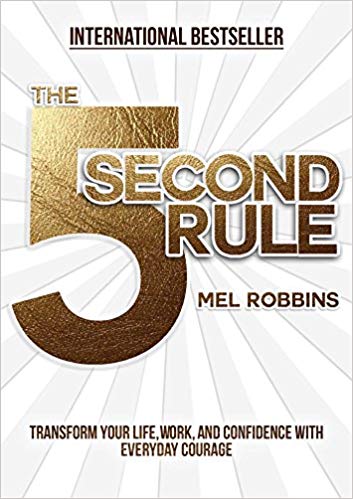Are you tired of feeling stuck and held back by your own limiting beliefs? Do you find yourself constantly second-guessing your abilities and doubting your potential for success? Get out of your own way!
It’s time to break free from the chains that are holding you back and start living the life you’ve always dreamed of. In this article, we will explore the steps you can take to overcome those limiting beliefs and get out of your own way.
By understanding the root causes of these beliefs and adopting proven strategies, you can transform your mindset and unleash your true potential. Whether it’s fear of failure, self-doubt, or negative self-talk, we will tackle each obstacle head-on and provide actionable insights to help you push past your limitations.
It’s time to stop holding yourself back and start embracing the possibilities that await you. So, are you ready to change the narrative and create a life filled with success and fulfillment?
Let’s dive in and discover how you can overcome your limiting beliefs and step into your greatness.
The 5 Second Rule

by Mel Robbins
The 5 Second Rule is a simple, one-size-fits-all solution for the one problem we all face —we hold ourselves back.
⏱ 10 minutes reading time
🎧 Audio version available
Understanding Limiting Beliefs and Their Impact
Limiting beliefs are deeply ingrained thoughts or perceptions that hold us back from reaching our full potential. They are often formed based on past experiences, societal expectations, or negative self-talk. These beliefs create a mental barrier that prevents us from taking risks, pursuing our dreams, and achieving success.
The impact of limiting beliefs can be significant. They can hinder personal growth, limit opportunities, and prevent us from reaching our goals. By understanding the power of these beliefs, we can begin to challenge and dismantle them.
To overcome limiting beliefs, we must first recognize their presence in our lives. Pay attention to the thoughts and beliefs that arise when you face challenges or when you consider pursuing new opportunities.
Acknowledge that these beliefs are not based on objective reality but are instead products of your own perception.
Challenge yourself to question the validity of these beliefs. Ask yourself if they are serving you or holding you back. Remember that beliefs are not set in stone and can be changed. By challenging the accuracy and usefulness of your limiting beliefs, you can open yourself up to new possibilities and opportunities.
Identifying Your Own Limiting Beliefs
To overcome limiting beliefs, it is crucial to identify and understand the specific beliefs that are holding you back. Take some time to reflect on your thoughts and feelings about yourself, your abilities, and your potential. Consider the areas of your life where you feel stuck or where you consistently face self-imposed limitations.
Some common examples of limiting beliefs include:
- “I’m not smart/talented/creative enough to succeed.”
- “I don’t have the right connections/resources/opportunities.”
- “I always fail, so there’s no point in trying.”
- “I’m too old/too young to achieve my goals.”
- “I don’t deserve success/happiness/fulfillment.”
By identifying these beliefs, you can bring them into your conscious awareness and begin to challenge their validity. Keep in mind that these beliefs are often deeply ingrained and may require time and effort to overcome. Be patient with yourself and approach this process with compassion and self-acceptance.
Challenging and Reframing Limiting Beliefs
Once you have identified your limiting beliefs, it’s time to challenge and reframe them. Start by gathering evidence that contradicts your beliefs. Look for examples of people who have achieved success despite facing similar challenges or limitations. This will help you realize that your beliefs are not absolute truths but rather self-imposed restrictions.
Next, reframe your limiting beliefs into empowering statements. For example, instead of saying “I’m not smart enough to succeed,” reframe it as “I am constantly learning and growing, and I have the ability to acquire the knowledge and skills necessary for success.” By shifting your perspective, you can change the way you think and act, opening up new possibilities for yourself.
Another effective strategy is to practice positive affirmations. Repeat affirmations that counteract your limiting beliefs, such as “I am capable of achieving my goals,” “I am deserving of success,” or “I am confident in my abilities.” By consistently reinforcing positive beliefs, you can gradually rewire your brain and replace the old, limiting beliefs with empowering ones.
Cultivating a Growth Mindset
A growth mindset is the belief that our abilities and intelligence can be developed through dedication and hard work. It is the belief that we can improve ourselves and our skills over time. Cultivating a growth mindset is crucial for overcoming limiting beliefs and achieving personal growth.
Embrace challenges as opportunities for growth and learning. Instead of avoiding difficult tasks or situations, approach them with a willingness to learn and improve. View failures as valuable lessons rather than signs of personal inadequacy. By reframing setbacks as stepping stones to success, you can foster resilience and perseverance.
Develop a love for lifelong learning. Seek out new knowledge, acquire new skills, and constantly challenge yourself to grow. Expand your comfort zone and embrace new experiences. By continuously pushing yourself outside of your comfort zone, you will develop the confidence and resilience needed to overcome limiting beliefs.
Setting Achievable Goals
Setting achievable goals is a crucial step in overcoming limiting beliefs. Break your long-term goals into smaller, more manageable tasks. This will make them less overwhelming and more attainable. Celebrate each milestone as you progress towards your ultimate goal, reinforcing your belief in your abilities.
Ensure that your goals are realistic and align with your values and passions. Set clear and specific objectives that are measurable and time-bound. This will provide you with a clear roadmap and a sense of direction, helping you stay motivated and focused.
Remember to be flexible and adapt your goals as needed. Life is unpredictable, and circumstances may change. By being adaptable, you can navigate obstacles and adjust your approach when necessary. This flexibility will prevent you from being derailed by setbacks and will allow you to maintain momentum towards your goals.
Surrounding Yourself with Positive Influences
The people we surround ourselves with have a profound impact on our mindset and beliefs. To overcome limiting beliefs, it is essential to surround yourself with positive influences and supportive individuals who believe in your potential.
Seek out mentors, coaches, or role models who have achieved what you aspire to. Their guidance and support can provide valuable insights and help you challenge your limiting beliefs. Engage in communities or groups that share your interests and goals. Surrounding yourself with like-minded individuals who are on a similar journey can provide encouragement and accountability.
Minimize your exposure to negative influences and toxic relationships. Surround yourself with people who uplift and inspire you, rather than those who reinforce your limiting beliefs. Remember that you have the power to choose who you allow into your life and the influence they have on you.
Taking Consistent Action Towards Your Goals
Taking consistent action is essential for overcoming limiting beliefs. Break your goals down into actionable steps and create a plan of action. Commit to taking small, consistent steps towards your goals every day.
Develop a habit of accountability. Track your progress, celebrate your achievements, and hold yourself responsible for your actions. Create a system of rewards and consequences to motivate yourself and stay on track.
Embrace the concept of “progress, not perfection.” Understand that setbacks and failures are a natural part of the journey. Instead of allowing them to reinforce your limiting beliefs, view them as opportunities for growth and improvement. Learn from your mistakes, adjust your approach, and keep moving forward.
Seeking Support and Accountability
Seeking support and accountability is crucial for overcoming limiting beliefs. Share your goals and aspirations with trusted friends, family members, or mentors. Their support, encouragement, and feedback can provide valuable insights and help you stay motivated.
Consider joining a mastermind group or finding an accountability partner who shares your goals. Having someone to share your progress, challenges, and successes with can provide valuable perspective and keep you accountable to your commitments.
Professional coaching or therapy can also be beneficial in overcoming limiting beliefs. A trained professional can help you identify and challenge your beliefs, provide guidance, and support your personal growth journey.
Celebrating Your Successes and Learning from Failures
Celebrating your successes, no matter how small, is crucial for reinforcing positive beliefs and building confidence. Take time to acknowledge and appreciate your achievements. Reward yourself for reaching milestones and accomplishing your goals. Celebrating your successes creates a positive feedback loop that reinforces your belief in your abilities and motivates you to continue pushing forward.
Similarly, learning from failures is essential for personal growth and overcoming limiting beliefs. Embrace a mindset of curiosity and learn from every setback or mistake. Analyze what went wrong, identify lessons learned, and adjust your approach accordingly. By viewing failures as opportunities for growth, you can turn setbacks into stepping stones towards success.
Related: 4 Effective Ways to Overcome Fear of Failure
Embracing a Mindset of Continuous Growth and Self-Improvement
To truly overcome limiting beliefs, it is essential to embrace a mindset of continuous growth and self-improvement. Recognize that personal growth is a lifelong journey and that you have the power to shape your own future.
Commit to ongoing self-reflection and self-awareness. Regularly assess your beliefs, thoughts, and actions. Challenge any new limiting beliefs that may arise and continue to reframe them into empowering statements.
Invest in your personal development. Read books, attend seminars, take courses, and seek out new experiences. Surround yourself with individuals who inspire and challenge you. By continuously expanding your knowledge, skills, and perspective, you can overcome limiting beliefs and unlock your full potential.
Conclusion: Breaking Free from Limiting Beliefs to Reach Your Full Potential
Limiting beliefs have the power to hold us back from achieving our full potential. However, by understanding their impact, identifying our own limiting beliefs, challenging and reframing them, cultivating a growth mindset, setting achievable goals, surrounding ourselves with positive influences, taking consistent action, seeking support and accountability, celebrating our successes, and embracing a mindset of continuous growth and self-improvement, we can break free from these self-imposed limitations and unleash our true potential.
Remember, the journey to overcoming limiting beliefs is not always easy or straightforward. It requires self-reflection, courage, and perseverance. But the rewards are immeasurable. By taking these steps, you can transform your mindset, break free from self-imposed limitations, and create a life filled with success, fulfillment, and infinite possibilities. So, are you ready to take the first step towards your greatness?
It’s time to stop holding yourself back and start living the life you’ve always dreamed of.

With the Snapreads app, you get the key insights from the best nonfiction books in minutes, not hours or days. Our experts transform these books into quick, memorable, easy-to-understand insights you can read when you have the time or listen to them on the go.
